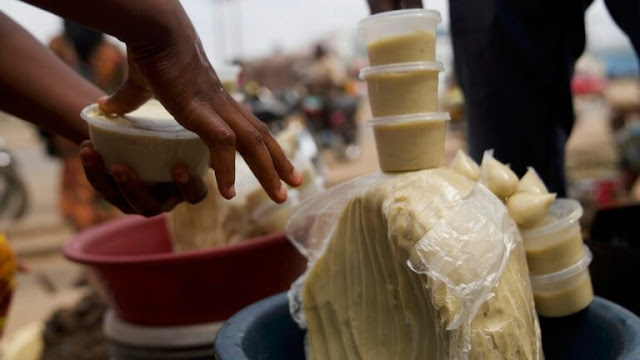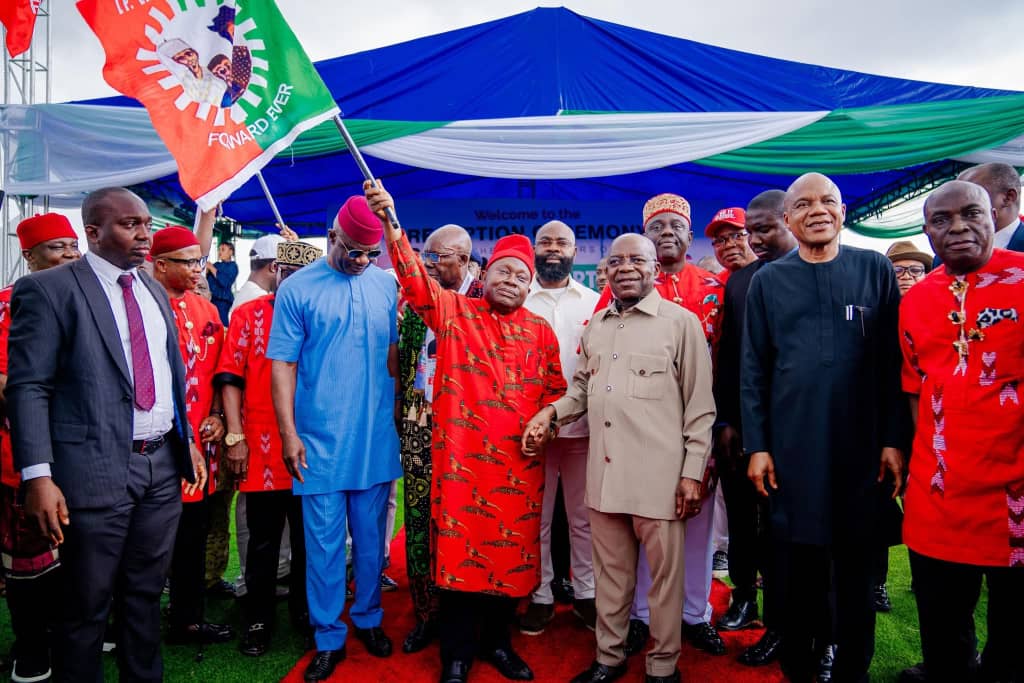On Saturday, August 30, 2025, Nigeria’s First Lady, Sen. Oluremi Tinubu, hailed the federal government’s recent ban on the exportation of raw shea butter as a timely and transformative intervention for the country’s agricultural sector. Speaking at the closing ceremony of a three-day National Workshop on Agro-Value-Chain Capacity Building for Women Farmers in Abuja, represented by Hajiya Nana Shettima, wife of the Vice President, the First Lady emphasized that the ban would empower local processors, particularly women, and create new opportunities within the agricultural value chain. The workshop, jointly organized by the Federal Ministry of Women Affairs and the Organisation of Islamic Cooperation (OIC), focused on equipping women farmers with modern skills, knowledge, and access to global markets, reinforcing the pivotal role of women in Nigeria’s agricultural transformation.
The Significance of the Shea Butter Export Ban
The federal government’s decision to ban the export of raw shea butter is a strategic move to bolster Nigeria’s agro-processing sector and reduce the country’s reliance on raw commodity exports. Shea butter, derived from the nuts of the shea tree (Vitellaria paradoxa), is a valuable commodity used globally in cosmetics, food, and pharmaceutical industries. Nigeria is one of the world’s leading producers of shea nuts, with women constituting over 95% of small-scale shea butter processors, particularly in northern and central regions of the country. However, the export of raw shea nuts has historically limited the economic benefits accruing to local communities, as value addition occurs abroad.
Sen. Oluremi Tinubu described the ban as a major step toward strengthening Nigeria’s agro-processing sector, particularly for women who dominate the shea butter industry. “This decision underscores the federal government’s commitment to boosting local agro-processing capacity,” she stated. By retaining raw shea nuts within Nigeria’s borders, the ban aims to stimulate domestic value addition, enabling local processors to produce finished products such as refined shea butter, cosmetics, and food-grade shea oil. This shift is expected to create jobs, improve household incomes, and enhance Nigeria’s competitiveness in global markets.
The First Lady highlighted the ban’s potential to empower women economically, noting that it would allow women processors to scale their businesses and contribute to national food security. “By retaining production within our borders, we are empowering women to scale their businesses, improve household incomes, and contribute to national food security,” she said. This aligns with the broader objectives of the Renewed Hope Agenda, President Bola Tinubu’s flagship policy framework, which emphasizes economic diversification, job creation, and inclusive growth.
The Role of Women in Nigeria’s Agricultural Sector
Women are the backbone of Nigeria’s agricultural sector, constituting nearly 70% of the agricultural labor force. They play a critical role in food production, processing, and marketing, particularly in rural areas. However, despite their significant contributions, women remain underrepresented in land ownership, access to credit, mechanization, and leadership roles within the sector. This paradox, as highlighted by the Minister of Women Affairs, Hajiya Imaan Suleiman-Ibrahim, limits the potential of Nigeria’s agricultural sector to achieve food security and economic growth.
Speaking at the workshop’s closing ceremony, Suleiman-Ibrahim described the event as a turning point for Nigerian women in agriculture. “The story of Nigeria’s agriculture is inseparable from the story of its women,” she said. She emphasized that women’s contributions are central to the nation’s food security and economic development, yet systemic barriers continue to hinder their progress. For instance, women farmers often lack access to land titles, modern farming equipment, and affordable financing, which restricts their ability to scale their operations.
Suleiman-Ibrahim noted that granting women equal access to resources could increase agricultural yields by 20–30%, enough to feed millions more Nigerians. This statistic underscores the transformative potential of empowering women farmers, not only for their communities but for the nation as a whole. By addressing these barriers, Nigeria can unlock significant economic and social benefits, including reduced poverty, improved nutrition, and enhanced food security.
The National Workshop: Empowering Women Farmers
The three-day National Workshop on Agro-Value-Chain Capacity Building for Women Farmers was a collaborative effort between the Federal Ministry of Women Affairs and the OIC, aimed at equipping women farmers with the skills, knowledge, and networks needed to thrive in the modern agricultural economy. The workshop covered a range of topics, including modern farming techniques, value addition, climate-smart agriculture, and access to global markets. Participants were drawn from across Nigeria, representing diverse agricultural communities and cooperatives.
The workshop’s practical sessions, such as those on greenhouse construction and crop sequencing, provided hands-on training to enhance participants’ technical skills. These sessions were designed to bridge the gap between traditional farming practices and modern technologies, enabling women farmers to increase productivity and adapt to changing environmental conditions. The focus on global market access also highlighted the importance of positioning Nigerian agricultural products, such as shea butter, for international competitiveness.
Participants were urged to leverage emerging opportunities in the agro-value chain to transform their livelihoods and contribute to economic growth. The workshop emphasized the importance of moving beyond subsistence farming to commercial agriculture, where women can create wealth, build sustainable businesses, and play a leadership role in their communities. By fostering partnerships and providing access to resources, the workshop aimed to empower women to take advantage of policies like the shea butter export ban.
The Women Agro Value Expansion (WAVE) Programme
A key highlight of the workshop was the unveiling of the Women Agro Value Expansion (WAVE) Programme by Minister Suleiman-Ibrahim. This ambitious initiative targets 10 million women across Nigeria, providing them with climate-smart technologies, affordable financing, agribusiness skills, and access to markets. The WAVE Programme is a cornerstone of the Renewed Hope Agenda’s commitment to gender equity and agricultural transformation, aiming to move women from subsistence farming to prosperity.
“With the right support, our women will not only feed the nation, they will feed Africa,” Suleiman-Ibrahim declared. The programme’s focus on climate-smart technologies addresses the growing threat of climate change, which disproportionately affects women farmers who rely on rain-fed agriculture. By providing access to drought-resistant crops, efficient irrigation systems, and renewable energy solutions, WAVE aims to enhance resilience and productivity.
Affordable financing is another critical component of the programme, as access to credit remains a significant barrier for women farmers. By partnering with financial institutions and leveraging government-backed schemes, WAVE will provide low-interest loans and grants to help women scale their operations. The programme also includes training in agribusiness skills, such as marketing, branding, and supply chain management, to enable women to compete in domestic and international markets.
Access to markets is a key pillar of WAVE, ensuring that women farmers can sell their products at fair prices. The programme will facilitate linkages with buyers, cooperatives, and export markets, helping women capitalize on the opportunities created by policies like the shea butter export ban. By institutionalizing gender equity in agricultural policies, WAVE aims to dismantle systemic barriers and create a more inclusive agricultural sector.
Voices from the Field: Participants’ Perspectives
The workshop received widespread praise from participants, who described it as a transformative experience. Afiniki Bubmba, a representative of the Country Women Association Network (KANET), called the training “life-changing,” particularly highlighting the practical sessions on greenhouse construction and crop sequencing. Inspired by the workshop, Bubmba announced her intention to start a mini-greenhouse project at home, demonstrating the immediate impact of the training on participants’ ambitions.
Bubmba also urged other women to embrace agriculture and challenge the stereotype that farming is “dirty work.” She emphasized that modern agriculture offers opportunities for innovation, entrepreneurship, and economic empowerment. Her call reflects a broader shift in perceptions about agriculture, particularly among women, who are increasingly recognizing its potential as a pathway to financial independence.
Another participant, Aisha Burka, also from KANET, described the knowledge gained during the workshop as “immeasurable.” She expressed her determination to mobilize between 100 and 200 women to benefit from her new skills, highlighting the ripple effect of the training. Burka emphasized that agriculture is not only about food production but also a platform for leadership, wealth creation, and national transformation. She encouraged women to start small, even in their backyards, underscoring the accessibility and economic rewards of farming.
These testimonies highlight the workshop’s success in inspiring and equipping women farmers to take bold steps toward improving their livelihoods. By providing practical skills and fostering a sense of agency, the workshop empowered participants to see themselves as key players in Nigeria’s agricultural transformation.
The Broader Context: Women and Agriculture in Nigeria
Nigeria’s agricultural sector is a cornerstone of its economy, contributing significantly to GDP and employing over 70% of the population. Women are central to this sector, playing critical roles in planting, harvesting, processing, and marketing agricultural products. However, systemic barriers such as limited access to land, credit, and technology have historically constrained their potential. Women own less than 20% of agricultural land in Nigeria, despite constituting the majority of the labor force, and they face significant challenges in accessing loans and modern farming equipment.
The shea butter export ban addresses one aspect of this challenge by promoting value addition within Nigeria, ensuring that women processors can capture more economic value from their labor. However, broader reforms are needed to address issues such as land tenure, financial inclusion, and gender disparities in leadership roles. The WAVE Programme, with its focus on equipping 10 million women with resources and skills, is a step in this direction, aligning with global efforts to promote gender equality in agriculture.
The Renewed Hope Agenda’s three key commitments—dismantling systemic barriers, moving women from subsistence to prosperity, and institutionalizing gender equity—provide a roadmap for achieving these goals. By prioritizing women’s empowerment, the government is recognizing their critical role in achieving food security, reducing poverty, and driving economic growth.
Challenges and Opportunities
While the shea butter export ban and the WAVE Programme present significant opportunities, they also come with challenges. Implementing the ban effectively will require investments in processing infrastructure, training, and market linkages to ensure that local processors can meet demand. Without adequate support, there is a risk that the ban could disrupt livelihoods for those reliant on raw shea nut exports.
The WAVE Programme’s ambitious target of reaching 10 million women will require significant resources and coordination across government agencies, private-sector partners, and international organizations like the OIC. Ensuring that rural women, who often face the greatest barriers, are included in the programme will be critical to its success. Additionally, addressing cultural and societal norms that limit women’s participation in agriculture will require sustained advocacy and community engagement.
Despite these challenges, the opportunities are immense. The shea butter export ban can position Nigeria as a global leader in shea butter processing, creating jobs and boosting export revenues. The WAVE Programme has the potential to transform the lives of millions of women, enabling them to build sustainable businesses and contribute to Nigeria’s food security. By leveraging partnerships with organizations like the OIC, Nigeria can access technical expertise, funding, and global markets to support its agricultural transformation.
Conclusion
The National Workshop on Agro-Value-Chain Capacity Building for Women Farmers, coupled with the federal government’s ban on raw shea butter exports, marks a turning point for Nigeria’s agricultural sector. Sen. Oluremi Tinubu’s endorsement of the ban highlights its potential to empower women processors and strengthen the agro-processing sector. The unveiling of the WAVE Programme by Minister Imaan Suleiman-Ibrahim further underscores the government’s commitment to gender equity and agricultural transformation.
By equipping women farmers with modern skills, affordable financing, and access to markets, Nigeria is unlocking the potential of its agricultural sector to drive economic growth and food security. The testimonies of participants like Afiniki Bubmba and Aisha Burka reflect the transformative impact of these initiatives, inspiring a new generation of women to see agriculture as a platform for leadership and wealth creation. As Nigeria continues to dismantle systemic barriers and promote inclusive policies, it is poised to not only feed the nation but also position its women as leaders in feeding Africa.







